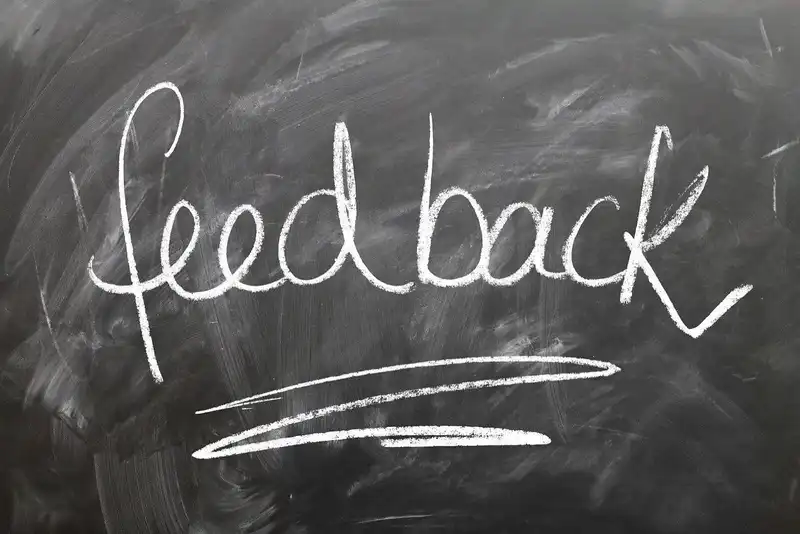The Best Methods for Effective Employee Communication
Insight Into Effective Employee Communication
Unclear objectives and expectations are detrimental to business, that's why effective employee communication is crucial if you want your employees to work efficiently and share information between their coworkers. People can sell better if they understand products and services, and they will be more motivated if they have clear guidelines.
Findings from Dynamic Signal's Annual State of Employee CommunicationEmployee Communication and Engagement Study show that 90 percent of employees believe good company communication is a key factor in creating a positive working environment.
Effective employee communication not only boosts employee engagement, but it also reduces turnover rate which is a constant concern in the restaurant industry.
In the same research, not only did 85% of employees view effective communication as an employee benefit, but 69% also reported that even with a lower than desired pay they would be less inclined to quit if management was better able to share information between team members and help employees through open two way communication.
Leading companies typically have annual employee communication surveys to evaluate and improve internal communication as part of the overall business strategy.
What is Effective Employee Communication?

Effective employee communication keeps businesses running smoothly and ensures teamwork for optimum employee performance. This process includes both verbal and non-verbal communication for one-on-one as well as group-level interactions.
Achieving an effective communication process involves keeping your employees well-informed not only about informing them about goals and objectives, but also providing a feedback mechanism in place.
Workplace communication is not a one-way street, so having avenues to engage with your employees as well as to get feedback from them will help strengthen your internal communication channels.
The Benefits of Effective Employee Communication

At first glance, it can seem intangible in relation to your operations, but studies have found several demonstrable benefits of effective employee communication to businesses.
Improve Employee Engagement
Employees not only want a clear direction when it comes to their job, but they also appreciate being heard. Therefore, they view effective communication as a benefit.
More importantly, they feel more valued and engaged in the process. In fact, 67% of employees will happily go above and beyond their duties if internal communication is effective.
In contrast, 70% of employees feel overwhelmed when a company has fragmented information and disjointed communication channels.
Employees Become Ambassadors
With improved employee engagement comes productivity. When employees can take ownership of their work, they not only perform better, they also become ambassadors of your brand.
With better employee engagement, as high as 83% of employees say they'd be an advocate of the business.
Increase Productivity and Sales
Engaged employees naturally perform better and will reflect in your productivity and sales. Whereas according to 52% of employees surveyed, poor communication can lead to poor financial outcomes like lost sales and damaged reputation.
Foster Trust
Good communication can gain or lose your employees' trust. A lack of transparency or an erratic communication style makes people lose confidence in the business and reflects badly on the business owner.
As a result, more than half of employees (60%) surveyed had no faith in their CEO, while 17 percent of them would recommend firing their CEO due to poor internal communication.
How to Communicate Effectively with Your Employees

Improving internal communication is all about strategizing and consistency. Here are the steps you can take to make your communication channels more effective.
Establish a Baseline
The first step is to ask your employees what they need to better communicate. For example, during this current pandemic when more people are working from home, you can provide the tools and equipment they may need so they can work effectively while working remotely.
You also need to know about their availability. Zoom call fatigue is a real concern, so you need to schedule wisely, respect boundaries, and make sure you are considerate with your employees.
Identify Communication Channels
These days communication happens in multiple channels- online and offline. You need to consider every communication strategy to create effective options.
Hold Regular Meetings
Setting meetings is already a given, but to have effective communication you need to expand your concept of meetings. You need to have both casual conversations as well as formal ones with different group sizes, including one-on-one sessions and group meetings.
Casual conversations or non-transactional conversations will help you build rapport with employees. One-on-one check-in conversations can happen bi-weekly just to get you updated on their progress and you can also have group huddles before a shift for a few minutes to set the tone for the day. Finally, you have your quarterly meetings to share information about company concerns and targets,
Introduce a Feedback Mechanism
Communication is not a top-down or one-sided process. There needs to be a back and forth, and one way to encourage two way communication is through feedback mechanisms. The first method is through the meetings, although not everyone will have the courage to speak out especially on contentious or controversial issues.
Therefore, you can also set up an anonymous channel so they can feel safe and supported even when it comes to their superiors. Finally, make sure you reward feedback, so they'll be more open to contributing in the discussion.
Communicate Good and Bad News
Remember that transparency and accountability are important, so make sure you communicate any type of news relevant to your organization. Good news can boost morale, while bad news can forge loyalty by instilling faith in the management.
Trust is built by this type of communication. For instance, during this pandemic, you need to set their expectations about job stability. You cannot give them false hope when it comes to job security in an unstable economic climate. You can reassure them but keep expectations realistic.
Follow Through and Plan Ahead
Make sure you take all the feedback seriously and use them to refine your business strategy. Following through with their suggestions will make your employees feel valued. Likewise, inform them about your plans to let them know that you are a team working together to achieve your targets.
Key Takeaways
- Effective employee communication is about keeping employees well-informed to encourage ownership of their work, promote teamwork, and keep businesses running smoothly.
- Some of the benefits of effective employee communication include increased employee engagement, create advocates for your business, boost in sales, and strengthened confidence in leadership.
- Consistent check-ins with employees, in both casual and formal settings, will build rapport and foster trust between you and your employees.
- Provide safe channels for feedback to encourage team members to raise possible concerns or give suggestions that can improve your business.
- Reward feedback and remember to follow through with any concerns raised and help employees to let them know that they are valuable to the business.
- Make sure there are transparency and accountability in your communication strategies to maintain credible leadership that your team members can emulate.





